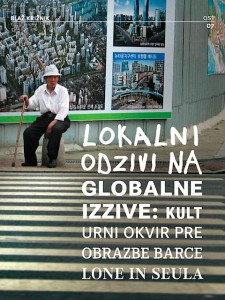Teorija in praksa, 51, pp. 221-240
Faculty of Social Sciences, University of Ljubljana | Ljubljana | 2014 | ISSN 0040-3598
Urban development has become an important instrument of neoliberal urban policy by which cities are trying to respond to global pressures and opportunities. Barcelona and Seoul are taken as case studies with different historical, cultural and institutional background, yet similar when it comes to how neoliberal urban policy and market-driven urban development are embedded into particular localities. The paper compares transformation of Poblenou in Barcelona and Wangsimni in Seoul in terms of planning approach, consequences on the everyday life in locality and local responses to market-driven urban development. Although its outcomes in Poblenou and Wangsimni were rather similar, the local responses were quite different. While the residents in Poblenou saw transformation of the neighbourhood as a threat to their collective identity, the residents in Wangsimni initially perceived it as an opportunity to improve their economic situation. The paper argues that local responses to market-driven urban development in this way reveal what Mlinar calls the mutual interdependence between individuation and globalisation. Although similar structural processes transform localities around the world, the later remain an important source of social and urban change in global cities.

